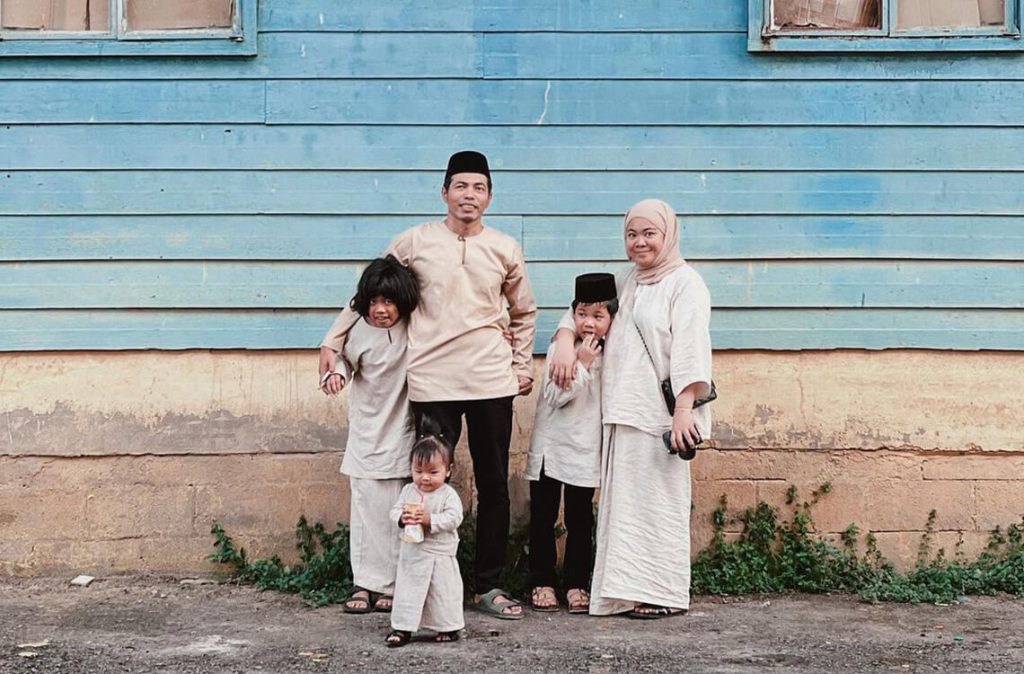Raising a child is hard enough, but doing so as a father of three kids (one of which has autism), is a different thing altogether. Udey Ismail, photographer and online content creator, is one such individual. Documenting his life and experiences raising an autistic child on Instagram, YouTube and TikTok, Udey is one of very few parents who have taken special needs awareness onto an online public platform. His bravery not only gives hope to special needs parents but also to various non-profit organisations who are fighting to educate the public on childhood developmental disorders. Read on to find out more about Udey, his journey on social media and his life as a father of three.
Balancing Family, Business and Career
Wan Salahuddin Wan Ismail, or Udey Ismail, is a freelance wedding and outdoor photographer with a penchant for outdoor pursuits. Before hanging up his camera and settling into a humble life of domestic responsibility, Udey had a promising career that took him all across the globe—such as to countries as far New Zealand on month-long photography projects. Choosing to turn down a golden opportunity to be part of an international documentary production, Udey sacrificed his career to focus all his time and energy into raising his children. Particularly his eldest child, Hagia, who was diagnosed with autism at the young age of 2 years old.
Choosing to capitalise on his love of the outdoors, Udey now runs a side business selling camping paraphernalia, posting product reviews on YouTube and getting branded sponsors for social media content. These endeavours kept his family financially afloat during his long hiatus from the world of photography. While he rarely does any professional work anymore, Udey does not let his fatherly duties get in the way of his one true passion. This time using his family and his side business as inspiration and subjects for his snapshots.
With more flexible working hours, Udey is able to dedicate more time at home with Hagia. He occasionally takes photography gigs if the time and place suits his personal arrangement. But even with a busy schedule, he makes time for family bonding. An outdoor enthusiast to the bone, Udey spends most of the weekends on camping trips, kayaking, swimming and jungle trekking. Even now, Udey occasionally posts updates about Hagia and the things they do together as part of the alternative therapies meant to help her deal with her autistic symptoms.
Destigmatising Autism and Special Needs Children
Udey is a fierce advocate of nature therapy. He often posts about his daughter on social media performing various outdoor activities that have significantly improved her condition. Hagia, for instance, loves swimming and showed an impressive talent for it at a young age. Her dad frequently takes her to swimming pools and other natural bodies of water where she can live her best mermaid life. Hagia also enjoys running and other physical activities.
According to Udey, these activities have greatly helped her fulfil the sensory stimulation she needs on a daily basis. Something that many autistic children often crave as a result of their condition. Udey notes that Hagia will often feel restless if they don’t do some form of physical activity, which posed a significant problem during the COVID-19 lockdown of 2020. It was around this time that Udey began scheduling at-home physical exercises for Hagia, even getting her a treadmill.
Many of Udey’s social media posts aim to destigmatise autism. They show that autistic children are not just about temper tantrums; like how society tends to portray them at times. Udey strongly believes that parents should wholly involve themselves in the therapy efforts. And not simply rely on special needs facilities to ‘fix’ their kids. While Udey still accompanies Hagia to therapy sessions, he also took these visits as a learning opportunity for him as a parent to continue and adapt those treatments at home. Working off the basic principles of occupational therapy, speech therapy, and early intervention, Udey now regularly plans Hagia’s daily therapy. As time went on, he found that it has worked wonders for her cognitive development.
Aside from swimming and running, Udey also includes some basic mobility exercises. These are not unlike Montessori-based ones which help with motor skills, such as balance beams, walking stilts, animal puzzles and crawl tunnels. These are just some of the instruments that help Hagia catch up on her developmental delays. Writing exercises are also part of the curriculum to help with recognising numbers and letters. These activities are often accompanied by Indra, Udey’s middle child, who while not neurodivergent, still joins in to encourage his sister to participate and to acquire some lifelong skills as well. The various games are also meant to improve Hagia’s interaction and communication.
While she is still non-verbal, Hagia is slowly growing to be an independent young girl. She can now understand and follow basic commands and conversations. She enjoys physical affection, and can express her emotions just like any girl her age can. Udey’s most important advice for parents of special needs kids is to always be patient. And to set aside your time in order to help guide them as best as you can. It is also important to always look for support groups who understand your struggles. Kindred spirits who can offer their wisdom and their help in times of need. While the road is indeed long and hard for the both of them, Udey hopes that Hagia will eventually learn to speak, and that he is looking forward to the day she will finally be able to call him “Dad”.
Disclaimer: The information provided in this article is for informational purposes only and should not be considered as medical advice from Motherhood. For any health-related concerns, it is advisable to consult with a qualified healthcare professional or medical practitioner.
For more insightful stories and fun recipes, stay tuned to Motherhood Story!
